
 Flash News
Flash News
Gunfire in Durres, a 30-year-old man is injured
Accident on Arbri Street, car goes off the road, two injured
Arrests of "Bankers Petrolium", Prosecution provides details: Exported and sold 532 billion lek of oil, caused millions of euros in damage to the state
Ndahet nga jeta tragjikisht në moshën 28-vjeçare ylli i Liverpool, Diogo Jota
Posta e mëngjesit/ Me 2 rreshta: Çfarë pati rëndësi dje në Shqipëri
"It won't be eternal", Rama's fluctuations from the 'Open Balkans' to the Berlin Process

Today in Tirana the process of the Berlin Summit was held with great fanfare.
The leaders of the European Union and those of the Balkans were welcomed by Prime Minister Edi Rama himself, parading on the red carpet one by one, while the ceremony also attracted the attention of foreign media who came to the Albanian capital.
Today, Rama became the host of a summit that, until some time ago, he described as an initiative that "would not last forever" while boasting the much-debated initiative of the Open Balkans.
If we go back just one year in time, on November 14, 2022 from Skopje, Prime Minister Edi Rama emphasized the great importance of the Open Balkans in relation to the Berlin Process.

Rama said at the time that the Berlin Process will not be eternal, just like the Open Balkans was.
" It is worth even more, because this is how the locomotive changes place with the wagons. The Berlin Process is the locomotive that pulled the wagons. And, in the end, we will be left with the Open Balkans because the Berlin process will not be eternal. And I don't believe that others should take us by the hand in the life of life," Rama declared.
The overlap of the Berlin Process with the Open Balkans
One of the arguments that Edi Rama gave to continue his adventure with Vučić to advance the "Open Balkan" was that this initiative was supported by 59% of Albanians.
In April 2022, the prime minister conducted the so-called National Consultation, where out of more than 500 thousand respondents it was found that the majority were in favor of a region with free movement of people, goods and ideas.
Even a few days after announcing these results publicly, Rama went on an official visit to Berlin and said alongside chancellor Sholtz that despite Germany asking him to focus on the Berlin process, he had the mandate of the Albanians to advance the Serbo-Macedonian idea. Albanian.
Closing the Open Balkans
However, as quickly as it began, the Open Balkans initiative ended with opposition.
At the beginning of the summer of this year, Rama himself declared that the Open Balkans completed its mission.

" The Berlin process is our main axis. The Open Balkans was an initiative that was born out of the need to push forward the Berlin Process and has fulfilled the mission for which it was born.
We must now plunge headlong into the Berlin Process because we have this opportunity, we have the Berlin Process in Tirana. We have the opportunity to master it as a process with the great support we have from Germany, from Chancellor Scholz and from everyone else, " he said, a statement that was unexpected for his 'brother' Vucic.
"I do not believe that Rama said this. I hope I can see him soon. The Open Balkans is an autonomous and autochthonous idea of the people from the Balkans, " Vucic declared at the time.
Why did Rama withdraw from the Open Balkans?

The Albanian government and the opposition in Albania, as well as former diplomats, had different attitudes about the achievements and the reasons for the closure of the regional initiative, which, apart from Albania, also included Serbia and North Macedonia.
For the SP, the initiative achieved its goal, why it was created as an impetus for the Berlin Process, while, for the opposition, it did not achieve anything, but only caused damage to relations with Kosovo and served Serbia.
The Prime Minister of Kosovo, Albin Kurti, declared that the "Open Balkans" initiative is more like a "Balkans open to influences from the East" than an initiative for a common regional market. The initiative was also rejected by Bosnia and Herzegovina.

The former Foreign Minister of Albania, Paskal Milo, told REL a few months ago that the reason for the end of this initiative is the fact that in October Tirana welcomes the summit of the Berlin Process, as well as the Kosovo-Serbia tensions.
"Albania is the host country of the Berlin Process summit in October of this year, heads of state and government of Europe will come, and it cannot simultaneously be the initiator of a regional initiative that creates an overlap with the Berlin Process. This is the reason that Prime Minister Rama announced, even without the knowledge of the Serbian President, Vucic, that the mission of the Open Balkans was closed.
Another last reason for this initiative is the fact that relations between Kosovo and Serbia did not improve - which was one of the goals of this initiative - but worsened. The tensions in the north of Kosovo dealt a blow to the initiative," Milo points out for Radio Free Europe.
What is the Berlin Process

The Berlin process was established in 2014 at the initiative of the former German chancellor, Angela Merkel, with the aim of connecting and integrating the countries of the Western Balkans before joining the European Union.
The Berlin Process serves as a platform for high-level cooperation between high-level official representatives of the so-called Western Balkan Six, which consists of Albania, Bosnia and Herzegovina, Montenegro, Kosovo, North Macedonia and Serbia. The process also includes EU institutions, international financial institutions and civil society in the region.
The November summit in Berlin also represents the revival of the process, since Chancellor Olaf Scholz leads the Government in Berlin. According to the announcement, the next summit will be organized in the Albanian capital, Tirana.
Latest news








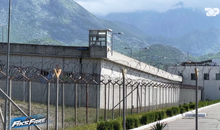

Greece imposes fee to visit Santorini, how many euros tourists must pay
2025-07-03 20:50:37
Don't make fun of the highlanders, Elisa!
2025-07-03 20:43:43
Gunfire in Durres, a 30-year-old man is injured
2025-07-03 20:30:52

The recount in Fier cast doubt on the integrity of the vote
2025-07-03 20:09:03


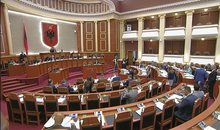

Heatwave has left at least 9 dead this week in Europe
2025-07-03 19:00:01

Oil exploitation, Bankers accused of 20-year fraud scheme
2025-07-03 18:33:52
Three drinks that make you sweat less in the summer
2025-07-03 18:19:35
What we know so far about the deaths of Diogo Jota and his brother André Silva
2025-07-03 18:01:56



Another heat wave is expected to grip Europe
2025-07-03 17:10:58

Accident on Arbri Street, car goes off the road, two injured
2025-07-03 16:45:27

Accused of two murders, England says "NO" to Ilirjan Zeqaj's extradition
2025-07-03 16:25:05




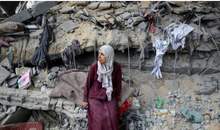
Gaza rescue teams: Israeli forces killed 25 people, 12 in shelters
2025-07-03 15:08:43
Diddy's trial ends, producer denied bail
2025-07-03 15:02:41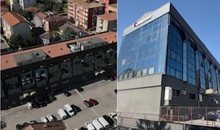

Agricultural production costs are rising rapidly, 4.8% in 2024
2025-07-03 14:55:13
Warning signs of poor blood circulation
2025-07-03 14:49:47
Croatia recommends its citizens not to travel to Serbia
2025-07-03 14:31:19
Berisha: Albania is the blackest stain in Europe for the export of emigrants
2025-07-03 14:20:19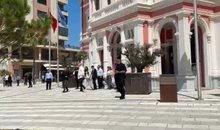

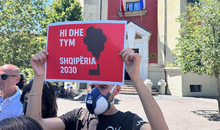
'Ministry of Smoke': Activists Blame Government for Wasteland Fires
2025-07-03 13:59:09

AFF message of condolences for the tragic loss of Diogo Jota and his brother
2025-07-03 13:41:36
Five healthy foods you should add to your diet
2025-07-03 13:30:19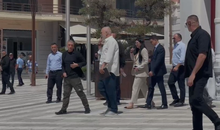
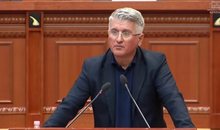


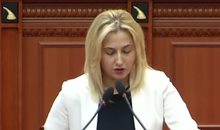


A unique summer season, full of rhythm and rewards for Credins bank customers!
2025-07-03 12:12:20

Fire situation in the country, 29 fires reported in 24 hours
2025-07-03 12:00:04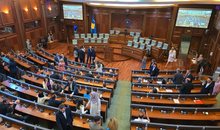
The constitution of the Kosovo Assembly fails for the 41st time
2025-07-03 11:59:57
The gendering of politics
2025-07-03 11:48:36
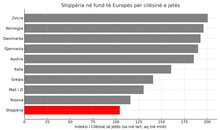
The price we pay after the "elections"
2025-07-03 11:25:39
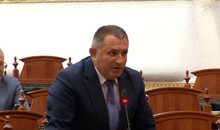
Xhafa: The fire at the Elbasan landfill was deliberately lit to destroy evidence
2025-07-03 11:08:43

The 3 zodiac signs that will have financial growth during July
2025-07-03 10:48:01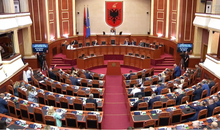
Democratic MP talks about the incinerator, Spiropali turns off her microphone
2025-07-03 10:39:24

Ndahet nga jeta tragjikisht në moshën 28-vjeçare ylli i Liverpool, Diogo Jota
2025-07-03 10:21:03
Cocaine trafficking network in Greece, including Albanians, uncovered
2025-07-03 10:10:12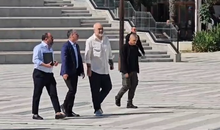


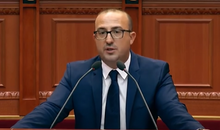
Korreshi: Election manipulation began long before the voting date
2025-07-03 09:39:13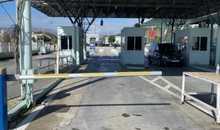
Arrest of Greek customs officer 'paralyzes' vehicle traffic at Qafë Botë
2025-07-03 09:28:41
After Tirana and Fier, the boxes are opened in Durrës today
2025-07-03 09:21:10
Enea Mihaj transfers to the USA, will play as an opponent of Messi and Uzun
2025-07-03 09:10:04

Foreign exchange, the rate at which foreign currencies are sold and bought
2025-07-03 08:53:50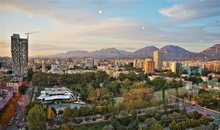
Index, Albania has the worst quality of life in Europe
2025-07-03 08:48:10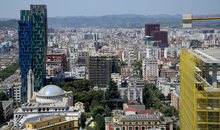
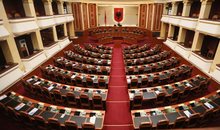

Horoscope, what do the stars have in store for you today?
2025-07-03 08:17:05
Clear weather and high temperatures, here's the forecast for this Thursday
2025-07-03 08:00:37
Posta e mëngjesit/ Me 2 rreshta: Çfarë pati rëndësi dje në Shqipëri
2025-07-03 07:46:48



Lufta në Gaza/ Pse Netanyahu do vetëm një armëpushim 60-ditor, jo të përhershëm?
2025-07-02 21:56:08
US suspends some military aid to Ukraine
2025-07-02 21:40:55



Methadone shortage, users return to heroin: We steal to buy it
2025-07-02 20:57:35
Government enters oil market, Rama: New price for consumers
2025-07-02 20:43:30
WHO calls for 50% price hike for tobacco, alcohol and sugary drinks
2025-07-02 20:41:53



